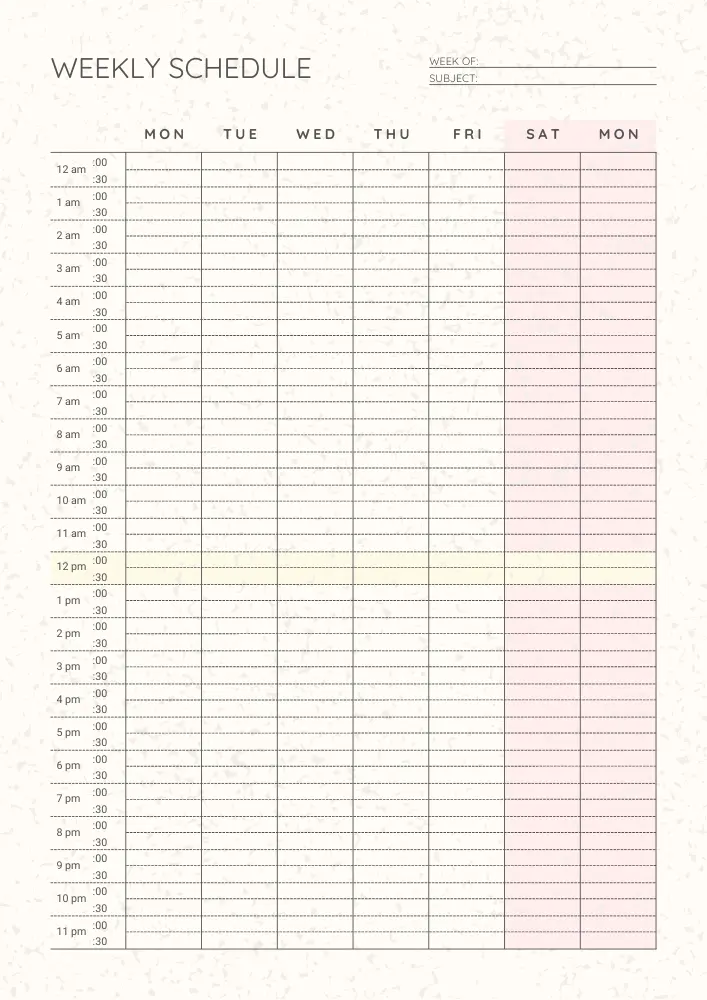Why a Weekly Time Management Schedule is Essential
Juggling work responsibilities, personal commitments, and self-care requires careful planning. A structured weekly time management schedule helps individuals prioritize tasks, reduce stress, and maximize productivity. Whether for professional goals or personal growth, having a well-organized schedule is the key to achieving success.
Effective Techniques for Weekly Time Management
There are multiple strategies to enhance your weekly time management schedule. Here are three widely used methods:
1. Time Blocking
This technique focuses on allocating dedicated time slots for various tasks and activities. By scheduling specific periods for work, meetings, and breaks, you can enhance focus and reduce distractions. Using a 2-hour weekly planner allows for detailed time allocation to prevent procrastination.
2. The Pomodoro Technique
This strategy divides work into short, focused intervals with scheduled breaks. The typical approach includes:
- Working for 25-minute sessions.
- Taking a 5-minute short break.
- After completing four consecutive work cycles, take an extended break of 15 to 30 minutes. This method improves concentration and reduces mental fatigue over the week.

3. The Eisenhower Matrix
This method organizes tasks into four distinct priority levels:
- Urgent and Important – Complete these immediately.
- Important but Not Urgent – Plan these tasks for future completion.
- Urgent but Not Important – Tasks that are urgent but not important should be delegated whenever possible.
- Neither Urgent nor Important – If a task is neither urgent nor important, consider eliminating or postponing it. Using a weekly planner with this method ensures that high-priority tasks get the attention they deserve.
Tools to Support Your Weekly Time Management
While digital apps provide convenience, using a 2-hour weekly planner can be a more effective approach. Writing down tasks reinforces commitment, minimizes screen distractions, and provides a clear structure. For individuals requiring greater flexibility, a 24-hour weekly planner offers a comprehensive solution, allowing for detailed scheduling of every hour in a day.



Work-Life Balance with a Weekly Schedule
A well-planned weekly time management schedule should not only focus on work but also allocate time for personal growth, relaxation, and hobbies. Maintaining a balance ensures long-term productivity and well-being.
Conclusion
A weekly time management schedule is a powerful tool for achieving goals efficiently. By incorporating time-blocking, the Pomodoro Technique, or the Eisenhower Matrix into your routine, you can optimize your productivity. Whether using a 2-hour weekly planner for structured planning or a 24-hour weekly planner for complete flexibility, scheduling time effectively leads to improved focus and reduced stress. Start organizing your week today and experience the benefits of effective time management!


Leave a Reply